Affordable and clean energy
Investing in renewable energy and supporting its affordability is vital to ensure energy for all. Expanding infrastructure and upgrading technology encourages growth and helps the environment.
A lack of access to reliable energy is a major constraint to economic growth and development. At the same time, fossil-fuel energy production and consumption are major contributors to climate change. To reconcile these conflicting challenges, BIO invests in renewable energy and energy efficiency projects.
Promoting clean and affordable energy requires tremendous public and private investments in energy infrastructure and climate finance. Estimates exceed EUR 1 trillion annually up to 2030. Because the energy sector creates a lot of jobs and economic development, these enormous investments indirectly help to reach other SDGs as well.
BIO has 13 direct investments in energy production facilities in its current portfolio. The total installed capacity of these projects reaches 1,453 MW. In 2021, they produced 4,657 GWh, an amount that would cover the annual energy consumption needs of about 15.1 million people. Ten are renewable energy projects that include geothermal, hydro, wind, and solar energy. They represent 26% of the total energy produced by BIO's direct energy projects and avoid the emission of 660,000 tonnes of CO2 annually. That is almost equal to the annual CO2 emissions of more than a million people in Ghana.
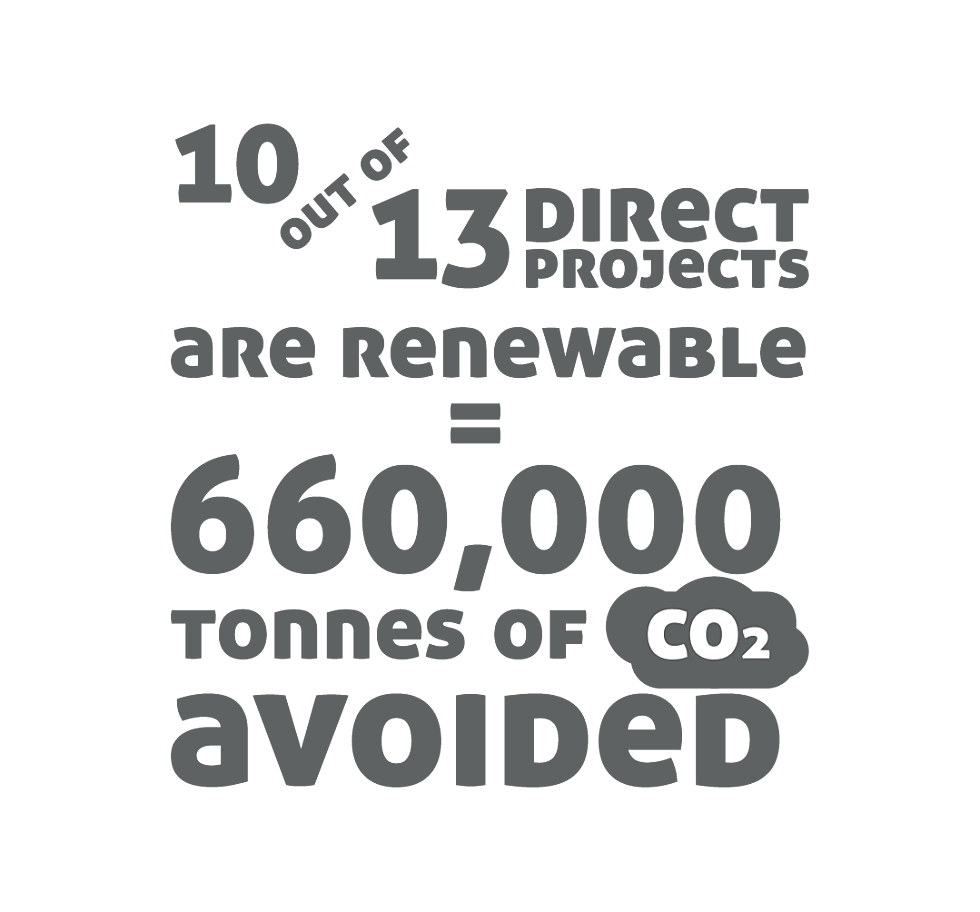
In addition to these direct investments, BIO has 59 indirect investments in energy-related projects. More than two thirds of these were production facilities, funded through 11 investment funds that focus on energy and energy efficiency projects. The other projects deal with the transmission and distribution of electricity. Together they have an installed capacity of 1,143 MW. In 2021, they produced 1,117 GWh of electricity. This is sufficient to cover the consumption of 1.2 million people in the countries of production and avoids the emission of 520,000 tonnes of CO2.
Increased availability, higher reliability, and lower prices for energy have large economy-wide effects as well, which include support to local jobs, added value, and opportunities for a modern and green industry.

BIO is fully committed to promoting renewable energy, but does not necessarily exclude investments in innovative gas projects, only when justified by the local context and in line with national long-term low emission development strategies. The three direct non-renewable energy projects produce reliable and cheaper electricity by using more efficient combined-cycle gas turbines. They are also cleaner than the locally available coal or diesel alternatives. However, in line with the EDFI Climate & Energy Statement, BIO will exclude all fossil fuel investments by 2030 at the latest.
A successful exit
Worldwide, there are still 940 million people who have no access to electricity. Off-grid solar systems could give hundreds of millions of them access at a more affordable cost. That is why SIMA, one of the largest investment funds in the off-grid solar sector, provides senior debt to innovative companies that finance, manufacture, and/or distribute individual solar home systems in sub-Saharan Africa and South Asia.
BIO has successfully exited its investment in SIMA’s Off-Grid Solar and Financial Access Fund, a 5-year closed-end investment fund focused on photovoltaic renewable energy solutions and access to solar home systems.
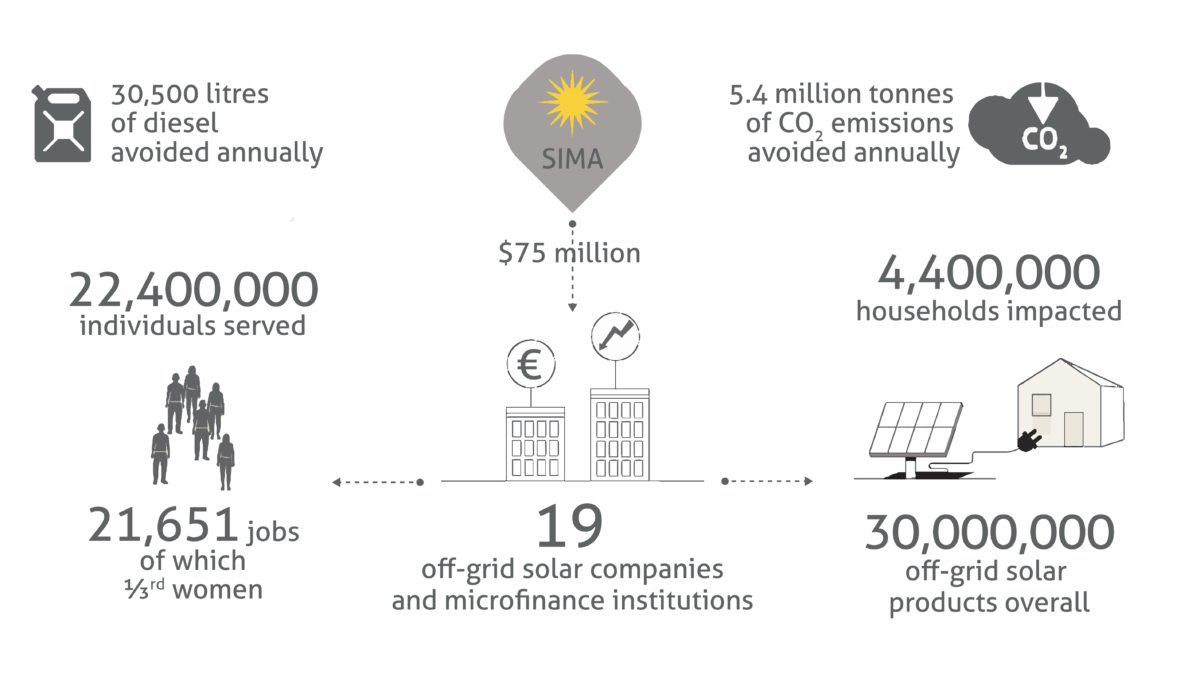
The fund ultimately invested USD 75 million in 19 off-grid solar companies and microfinance institutions. These provide access to energy to the poorest socio-economic groups and created 6,275 jobs, of which 30% occupied by women.
Overall, investees of SIMA have provided clean energy for over one million beneficiaries. It is estimated that SIMA’s portfolio companies avoided more than 6 million tons of CO2 emissions.
Over the investment lifetime, the E&S risk management of the fund has improved: SIMA has developed an ESG policy that includes an E&S risk assessment during Due Diligence phase, encouraging the borrowers to monitor E&S risk throughout the investment period, and more generally, it has demonstrated intent and willingness to measure its effectiveness in terms of social impact. This has been evidenced by SIMA’s active engagement in GOGLA, the global association for the off-grid solar energy industry.
Having access to clean, affordable and secure energy is a challenge in many of BIO’s countries of operation. When faced with a shortage of electricity, you can either increase your production or reduce your consumption. That is why BIO supports energy efficiency projects that reduce energy consumption by replacing obsolete equipment for newer, more efficient versions.
Cooking over open fires or inefficient stoves typically entails burning fuels such as wood, charcoal, coal, and kerosene that release harmful GHG emissions. Highly efficient cooking stoves use 30-60% less fuel, reducing forest degradation, deforestation, and climate change. This is what BIO contributes to through investments in clean cooking value chains e.g., Spark+, Xpress Gas.
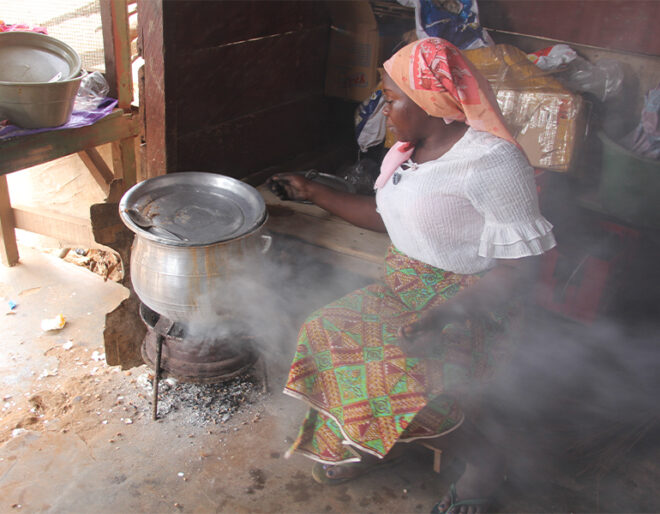
XpressGas’s biggest competitor is the charcoal industry. About 35% of Ghanaian households still use charcoal to cook, and the Greater Accra and Ashanti regions combined consume over 50% of all the charcoal used in the country. While people in the countryside gather wood in their backyards or in the bush and burn it on an open fire, people in peri-urban areas don’t have that option. Instead, they rely on charcoal imported from the countryside.
In some specific contexts, replacing wood and charcoal with gas is the most effective way to reduce greenhouse gas emissions in the short term. Using gas for cooking instead of firewood decreases CO2 emissions by about 60% and, furthermore, reduces the need to cut trees for firewood, one of the world's most important causes of deforestation.
In addition to the energy produced from fossil fuels or from renewable energy sources, there’s the energy locked into agricultural by-products or waste. By burning or digesting these under strictly controlled circumstances, we can recuperate energy that would otherwise have gone to waste. That is why BIO is also willing to invest in Waste-to-Energy facilities and will encourage its other clients to look for solutions for their by-products and waste streams.
In adherence to both national laws and applicable international standards, every power project funded by BIO must rigorously comply with stringent guidelines. To ensure the highest level of best practices, measures are instituted during both the construction and operational phases of these projects. This includes implementing an E&S impact assessment, prioritising local hiring practices, formulating community investment plans, and appointing dedicated personnel responsible for health and safety management, community liaison, and environmental studies and monitoring.
One of the issues frequently encountered in the energy sector is the uncertainty regarding the solar value chain.
Solar value chains
Over the past year, there have been increasingly alarming reports about forced labour concerning the Uyghur minority in China in the solar panel production. This raises many questions about how to deal with the risk of investing in projects involving solar panels.

Today, the social risk of investing in the solar value chain represents a big challenge, to be addressed with increased awareness and long-term commitment towards alternative value chains.
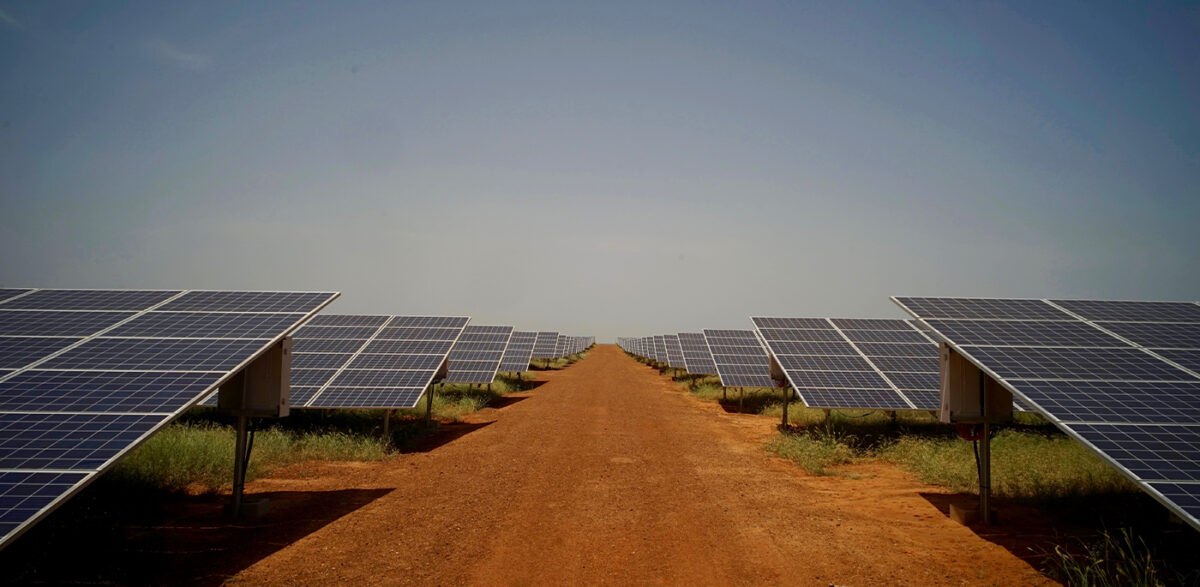
BIO vehemently condemns any use of forced labour in its investment projects and in their supply and off-taker chains, and will communicate this position in all relevant relations with (potential) clients and other stakeholders. BIO favours the creation of fully transparent alternative solar panel supply chains so that any risk of forced labour can effectively be excluded. BIO will keep itself informed on the development of such alternatives and will support them with investments and technical assistance.
Moreover, BIO seeks to align itself with European DFIs, IFC and the World Bank Group on a joint policy to address the risk of forced labour in solar panel supply chains.
candi solar
In 2022, BIO has granted an additional USD 7 M loan to candi solar, a company installing, owning, and operating solar production plants in India and South Africa. The investment follows on a first intervention in 2020, when BIO granted the company USD 5 M.
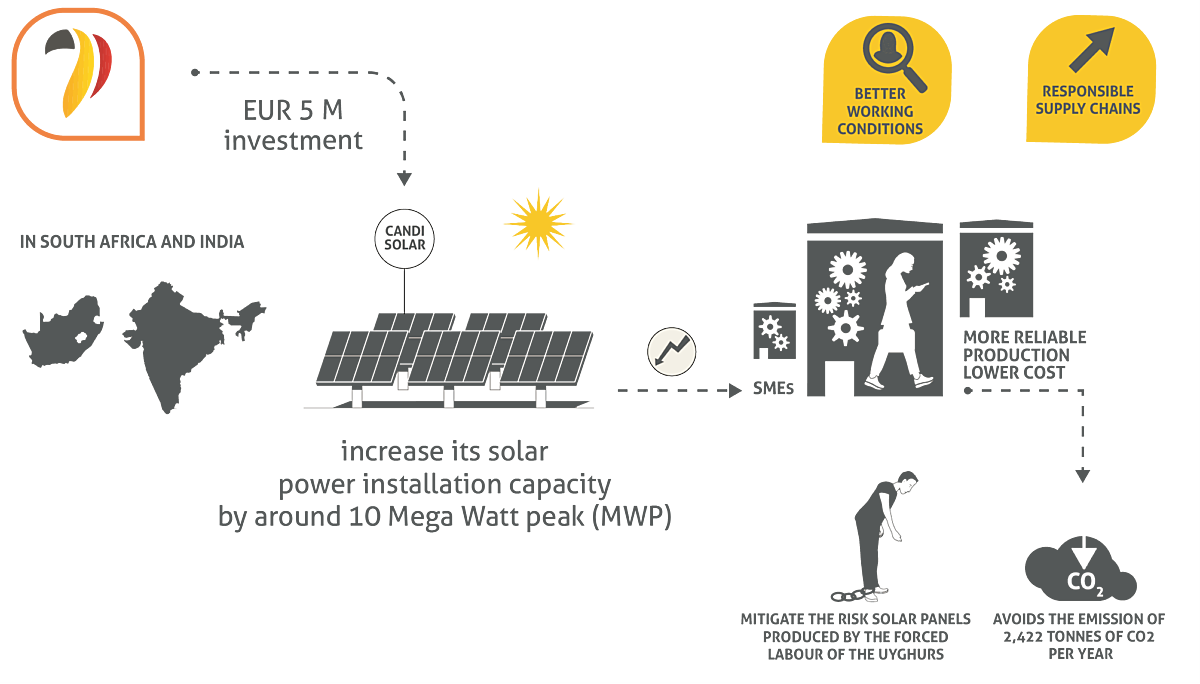
In addition to BIO’s investment, responsAbility – a leading impact asset manager who designs sustainable investment products - co-financed USD 7 M. This will further support candi solar's increasing capacity: they reached 32 MW in operation at the beginning of 2022. A technical assistance project has also been granted by BIO aimed to upgrade candi’s credit scoring tool.
